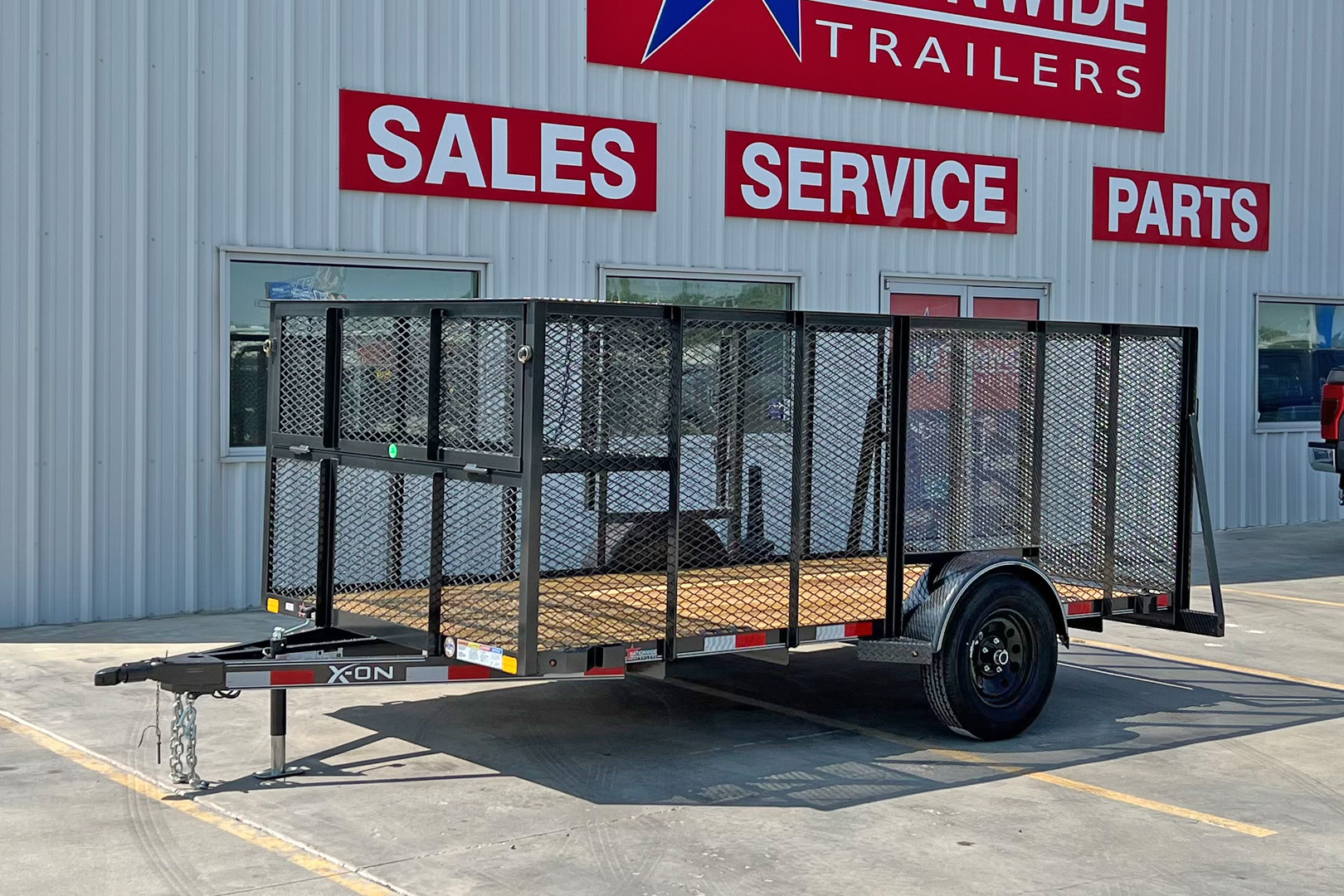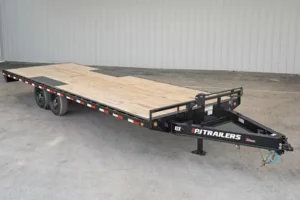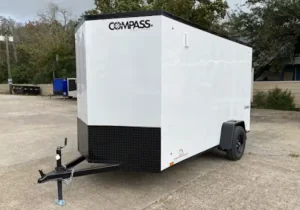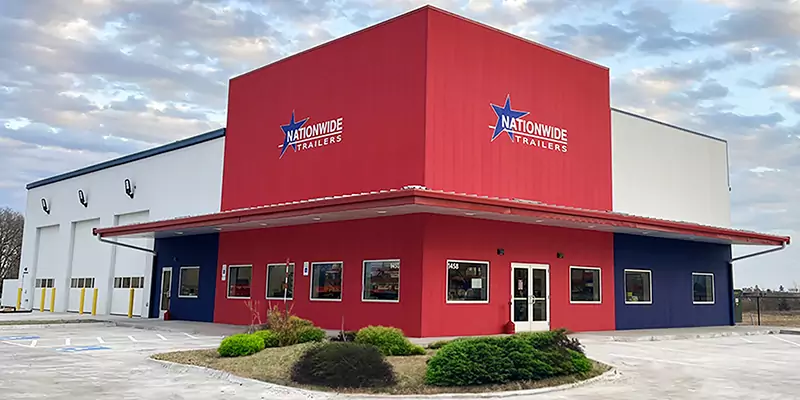
Navigating the bustling streets of Houston can be challenging for any driver, but throw in the complexities of towing a trailer, and it’s an entirely different experience. With its winding highways and busy urban roads, Houston presents unique challenges for those hauling enclosed trailers, utility trailers, or even gooseneck trailers. However, with the right knowledge and preparation, safe and efficient towing is entirely possible. In this guide, we will provide valuable tips and insights to help you tackle trailer towing in Houston like a pro.
Understanding the Challenges of Urban Towing
Towing a trailer in an urban environment like Houston demands extra attention and skills. The city’s traffic congestion, narrow lanes, and frequent construction zones can pose significant hurdles. Additionally, the sheer volume of vehicles on the roads increases the likelihood of unexpected stops and tight maneuvers. Understanding these challenges is the first step toward overcoming them.
In Houston, it’s crucial to stay vigilant and patient. Unlike rural highways, city roads require constant attention to the behavior of other drivers, as well as potential obstacles like pedestrians and cyclists. Keep in mind that your stopping distances are increased when towing, so maintaining a safe following distance is key. Finally, always be prepared for sudden lane changes or merges, as these are common in densely populated urban areas.
Maneuvering Houston’s Roads Safely
Successfully navigating Houston’s streets while towing requires a combination of skill and strategy. First and foremost, know your route ahead of time. Planning your path can help you avoid congested areas and low-clearance bridges or underpasses. GPS devices tailored for RVs and trucks can be invaluable tools.
When driving, remember to make wide turns to prevent your trailer from clipping curbs or other vehicles. Use your side mirrors extensively to monitor your trailer’s position and keep an eye out for blind spots. Additionally, signal your intentions early to give other drivers ample notice of your maneuvers.
Patience is vital. Urban driving often involves stop-and-go traffic, which can be taxing when towing. Maintain a steady pace, and avoid aggressive driving behaviors. If you find yourself in a particularly tricky situation, consider pulling over safely and taking a moment to reassess your surroundings.
Exploring Different Types of Trailers
Understanding the type of trailer you are towing can greatly influence your towing experience. Each trailer type has specific characteristics and requirements:
Enclosed Trailers
Enclosed trailers offer protection from the elements, making them ideal for transporting valuable or sensitive items. However, they are generally heavier and can impact your vehicle’s fuel efficiency. Ensure your vehicle is rated to tow an enclosed trailer safely, and familiarize yourself with its weight distribution to minimize sway.
Utility Trailers
Utility trailers are versatile and often used for hauling landscaping equipment or small loads. Their open design keeps them lightweight, but it also makes securing your load crucial. Always use appropriate tie-downs and covers to prevent cargo from shifting or falling out during transit.
Gooseneck Trailers
Gooseneck trailers provide excellent stability and weight distribution, making them popular for towing heavier loads like livestock or large machinery. They require a special hitch mounted in the truck bed, so ensure your vehicle is properly equipped. Practice maneuvering with a gooseneck trailer, as it differs from bumper-pull trailers in terms of turning dynamics.
Essential Trailer Maintenance for Urban Towing
Regular maintenance checks are essential for safe towing, especially in a city setting where road conditions can be unpredictable. Begin with a thorough inspection of your trailer before each trip. Check tire pressure and tread depth to avoid blowouts, which can be particularly dangerous in heavy traffic.
Inspect the trailer’s lights and signals to ensure they are functioning correctly. Faulty trailer lights can lead to accidents, especially during night-time driving. Additionally, examine the trailer’s brakes, hitch, and safety chains for signs of wear or damage. Keeping these components in top condition can prevent mishaps on the road.
Schedule regular professional inspections to address any mechanical issues that may not be immediately apparent. This proactive approach can save you from costly repairs and keep your towing experience smooth and trouble-free.
The Importance of Proper Weight Distribution and Loading
Proper weight distribution is a crucial aspect of safe towing. Incorrectly distributed loads can lead to sway, accidents, and undue strain on your vehicle. Balance your cargo evenly, with heavier items placed over the axle and lighter items toward the ends.
When loading your trailer, aim for a tongue weight (the downward force at the trailer hitch) of about 10-15% of the total trailer weight. This helps maintain stability and control. Avoid overloading your trailer, as this can lead to dangerous driving conditions and potential legal penalties.
Secure your load using appropriate restraints and check them periodically throughout your trip. Loose cargo can shift and affect your trailer’s stability, especially during abrupt stops or sharp turns.
Emergency Preparedness on Houston Roads
Despite the best preparations, emergencies can happen. Being prepared for breakdowns or accidents can make a significant difference in your response. First, ensure you have a roadside emergency kit that includes essentials like flares, a flashlight, jumper cables, and basic tools.
In the event of an accident or breakdown, prioritize safety. Move your vehicle and trailer to a safe location, if possible, and alert other drivers using hazard lights or reflective triangles. Document the situation with photos for insurance purposes and contact emergency services if needed.
Conclusion and Key Takeaways for Safe Urban Towing
Towing in Houston’s urban environment comes with its own set of challenges, but with proper preparation and knowledge, you can confidently tow safely. Remember to plan your routes carefully, maintain your trailer regularly, and practice safe driving techniques.
Understanding the specific requirements of different trailer types and ensuring proper weight distribution are keys to a successful towing experience. By staying prepared for emergencies and adopting a proactive approach to maintenance, you’ll enjoy a safer and more efficient towing experience in and around Houston.
For additional tips and expert advice on towing, visit our website to learn more about navigating Houston’s roads safely. You’re not alone on this towing journey—join our community and share your experiences with fellow towing enthusiasts.




